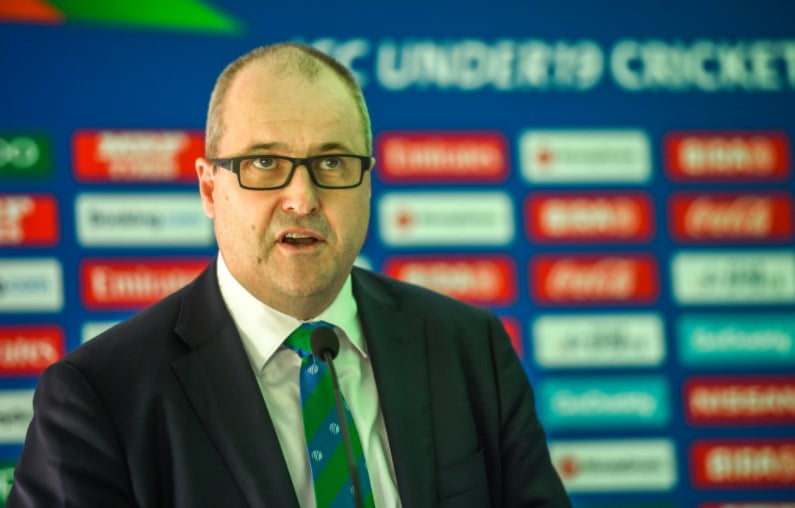Wellington: Discussions are on to ‘bridge the gap between women and men’s prize money’ in cricket’s global competitions. This information was given by ICC’s chief executive Geoff Allardice. The game’s apex body plans to bring in parity in prize money for finishing positions in its men’s and women’s tournaments in the next eight-year cycle starting from 2024 to 2031.
Geoff Allardice made the statement after being pointed out that the winners of the ongoing Women’s ODI World Cup in New Zealand will be richer by just one-third of the prize money won by the 2019 men’s World Cup winners.
“One of the things that we did at the start of the cycle was we projected through this event cycle – most of the ICC’s finances are done with an eight-year view – and what we’ve been trying to do over this cycle is bridge the gap between the women’s prize money and the men’s prize money,” Allardice was quoted as saying by ‘ESPNcricinfo.Com’.
“We are about to start discussions around the next cycle. One of the starting points for that discussion is going to be trying to get parity for the finishing positions of teams in women’s events and comparable men’s events. So we’re not there yet, but we’re on the journey to getting towards prize money parity,” added Allardice.
Even though the ICC had doubled the prize money of the ongoing Women’s ODI World Cup to USD 1.32 million, it is still USD 6.5 million less than what was given away at the 2019 men’s ODI World Cup, which England won.
The ICC official, however, said that an expansion of Women’s ODI World Cup from eight to 10 teams will only happen in 2029.
“We’re coming from a long way back. We’re making progress in that (prize money disbursement) area. In terms of where we’re at, I mean, the tournaments have got a different number of teams; they’re different lengths,” Allardice pointed out.
“What we’re trying to come up with for the next cycle when we’ve got the opportunity to model out our finances (and) our prize money distribution afresh is being able to get a parity (and) that we will address the issues that you raise,” Allardice stated.
Allardice is excited and overwhelmed to see the interest generated by cricketer-mothers in this World Cup. A total of eight mothers have played in the tournament. Among them are Pakistan captain Bismah Maroof, New Zealand’s Amy Satterthwaite and Lea Tahuhu, Megan Schutt and Rachael Haynes of Australia, Lizelle Lee and Masabata Klaas (South Africa) and Afy Fletcher (West Indies).
“…It’s been a noticeable development in this competition. Most of the changes and the accommodations that would be made would be at the national level, with the arrangements around the national team,” Allardice pointed out.
“We would make the arrangements around the tournaments here but the ability for mothers to be able to continue to play cricket and raise young families is something that I think each of the members is checking in their own way and it’s good to see the progress made in that area,” he added.
